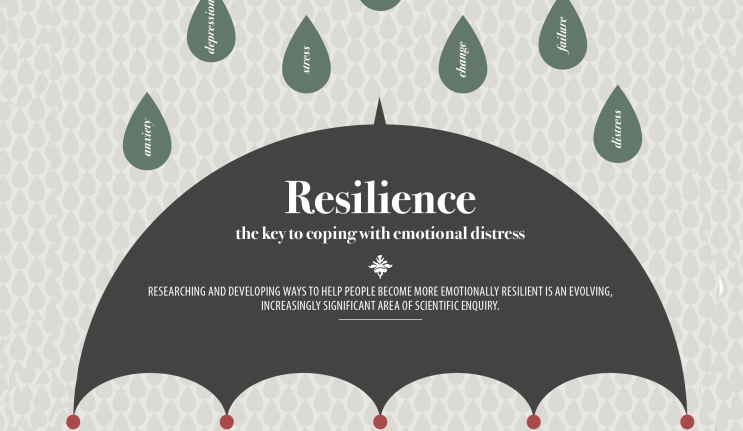
RESEARCH NEWS
Resilience – the key to coping with emotional distress
Helping people handle stress, deal with change and bounce back from failure is becoming increasingly common everywhere from the military to banks, the sports field – and schools.
“All psychology is basically about resilience,” says Professor Ron Rapee, Distinguished Professor in the Department of Psychology and Director of the Centre for Emotional Health (CEH).
“Being able to manage emotions and stress can impact everything from family, social relationships and jobs to medical and physical issues, and can translate through to policy and economic management,” he says. “The financial costs of emotional distress are very high if we look at absenteeism, family breakdown, problems in the classroom and so on.”
CEH is recognised worldwide for its contribution to the understanding and treatment of emotional disorders in children and adults. In the past 20 years it has developed ground-breaking programs to help people from pre-school age through to 90 cope with anxiety. One of its best-known programs is Cool Kids, which is helping anxious children in countries as diverse as Turkey, Korea and China.
Emotional distress in children can stem from excessive worrying about the future or catastrophising normal setbacks, explains Dr Heidi Lyneham, Clinic Director at the CEH. “We see seven-year-olds worrying they won’t pass their driving test, or 14-year-olds who didn’t get top marks in a maths exam thinking it means they won’t get to university, won’t get a job, won’t have a house.
“We teach them how to look at the world in a more realistic way, not to run away, and that they can cope even if they feel unsure in a situation. We help them see failure and problems as a manageable, normal part of life.”
Tips for helping worried children:
- Genuinely praise a child for their effort, which reinforces the process of taking action, and takes the focus off the end result
- Encourage positive self-talk by discussing a day’s events and noticing the positives in situations
- Move beyond black and white thinking and absolutes such as ‘I always get it wrong’ to acknowledging the whole experience, which undoubtedly includes positives
- Act as if negative self-talk is not true by encouraging small steps towards completing a task, and giving children the opportunity to achieve success and understand that the task is not so scary, embarrassing, or humiliating after all
- Be a positive role model and demonstrate flexible, open-minded, balanced and rational thought processes.